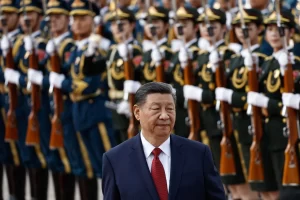Coronavirus vaccine boosters are now recommended by the World Health Organization, starting with those at greatest risk. A shift from its previous position that booster shots are not necessary for healthy adults and an acknowledgement that vaccine supply is improving around the globe.
The U.N. health agency announced on Friday that booster doses of the Pfizer-BioNTech vaccine will now be recommended, starting with the highest priority groups about four to six months after receiving the first two doses. Several countries have already embarked on booster programs months ago, following guidance from the U.N.
World Health Organization urged rich countries last year to cease offering booster doses until the end of 2021, but their request went almost entirely unheeded.
The agency noted the waning of immune protection over time after its expert vaccine group evaluated the increasing data related to booster doses. In recent months, numerous studies have demonstrated that booster doses can restore antibody levels and provide strong protection from severe disease, including COVID-19 variants omicron and delta.
Dr. Kate O’Brien, WHO’s director of immunization, vaccines and biologicals, said boosters are part of the vaccination program, but they do not mean they can be given to any age without restriction. “We continue to emphasize vaccination of highest priority groups,” she said.
Last fall, the World Health Organization promoted the use of a Pfizer-BioNTech vaccination for children as young as 5 at a reduced dose. Countries like the United States and Canada authorized Pfizer’s vaccine for young children.





